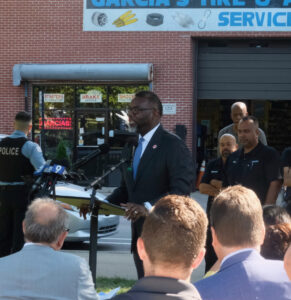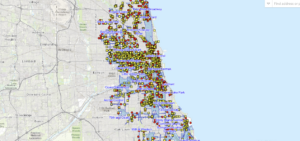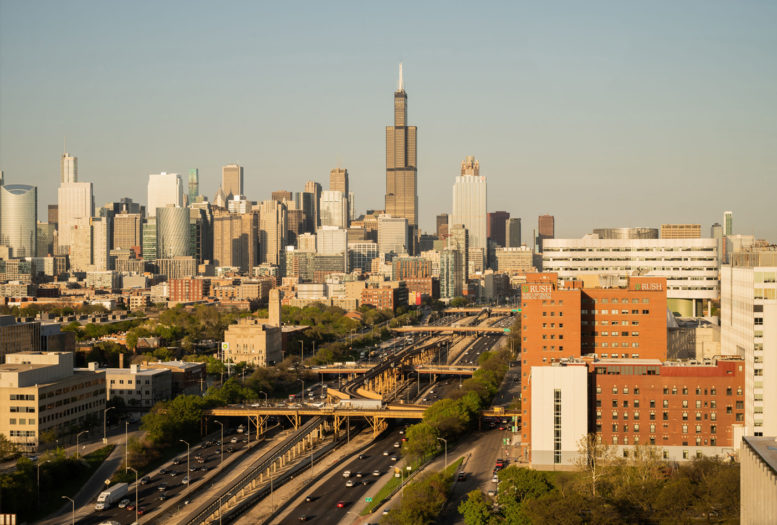The Chicago City Council has approved a $1.25 billion borrowing plan over five years. This is a win for Mayor Brandon Johnsons plan, aiming to increase affordable housing and good-paying jobs without raising property taxes.

Mayor Johnson speaking at HHDC dedication. Photo by Jack Crawford
Ald. Pat Dowell called the proposal “historic”. It’s designed to support new businesses and cultural facilities across the city, including areas with stagnant or declining property tax revenue. The plan also marks a shift away from the city’s reliance on tax increment financing districts, known as TIFs.

TIF projects from Chicago.gov
Despite attempts to lower the borrowing limit and the cost threshold for project approval, these efforts failed. The plan, which requires alderpeople to approve every project over $5 million, is expected to significantly impact Chicago’s most vulnerable communities and address the city’s affordable housing shortage.
Subscribe to YIMBY’s daily e-mail
Follow YIMBYgram for real-time photo updates
Like YIMBY on Facebook
Follow YIMBY’s Twitter for the latest in YIMBYnews


And based on average cost of $600,000 per unit, this will result in just over 2000 units being built. Cleary not enough for the 65,000 people the city says are homeless. Oddly enough that is 10% of what the federal HUD says exists in the whole country.
No price is too high for affordable housing LOL
This isn’t the sole source of funding for affordable housing. I’m also skeptical that $600,000 actually the average price per unit.
If the price is brought down even to $400,000 and funds are matched at only %50 (which isn’t unreasonable, given tax credits, State funding, and private funding sources), we’ll get to 20% of the needed homeless units (assuming a smaller than average household size of 2 people). That’s not a bad start for just 5 years.
The reality is that it’s far more complicated than just cost per unit. Homeless services are different than affordable housing units and homeless counts are a function of a lot of factors, not just availability of affordable units. Constructing new units, enhancing economic vitality, and partnering with the myriad other funding sources in the City, this money can go a long way.
God this guy blows. The next mayor can’t come fast enough.
Funny that supposed YIMBYs are whining about this so much. This legislation has been in the works for a while. Do you all like TIFs better? The thing I never see people considering when comparing building costs is that if a developer was going to sell a building they just built they would want to make 20% profit or more potentially. This is factored in the cost of building affordable units that cost the same as a normal unit because the regulation requires that they aren’t cheap quality. So the price of affordable units is often factoring in the profit margin that other building costs are not.
Plus if these investments are directed at transit hubs and filling in vacancy in disinvested neighborhoods it could have outsized impact for the investment. Especially if it’s more small scale 4-8 unit lot infill.
I would love more information on the funding. This article is less info than even a press release would provide. I’ve heard about the city having some ownership stake, which makes a lot of sense since this most affordable housing is paid for by the government without seeing any of the rent income.